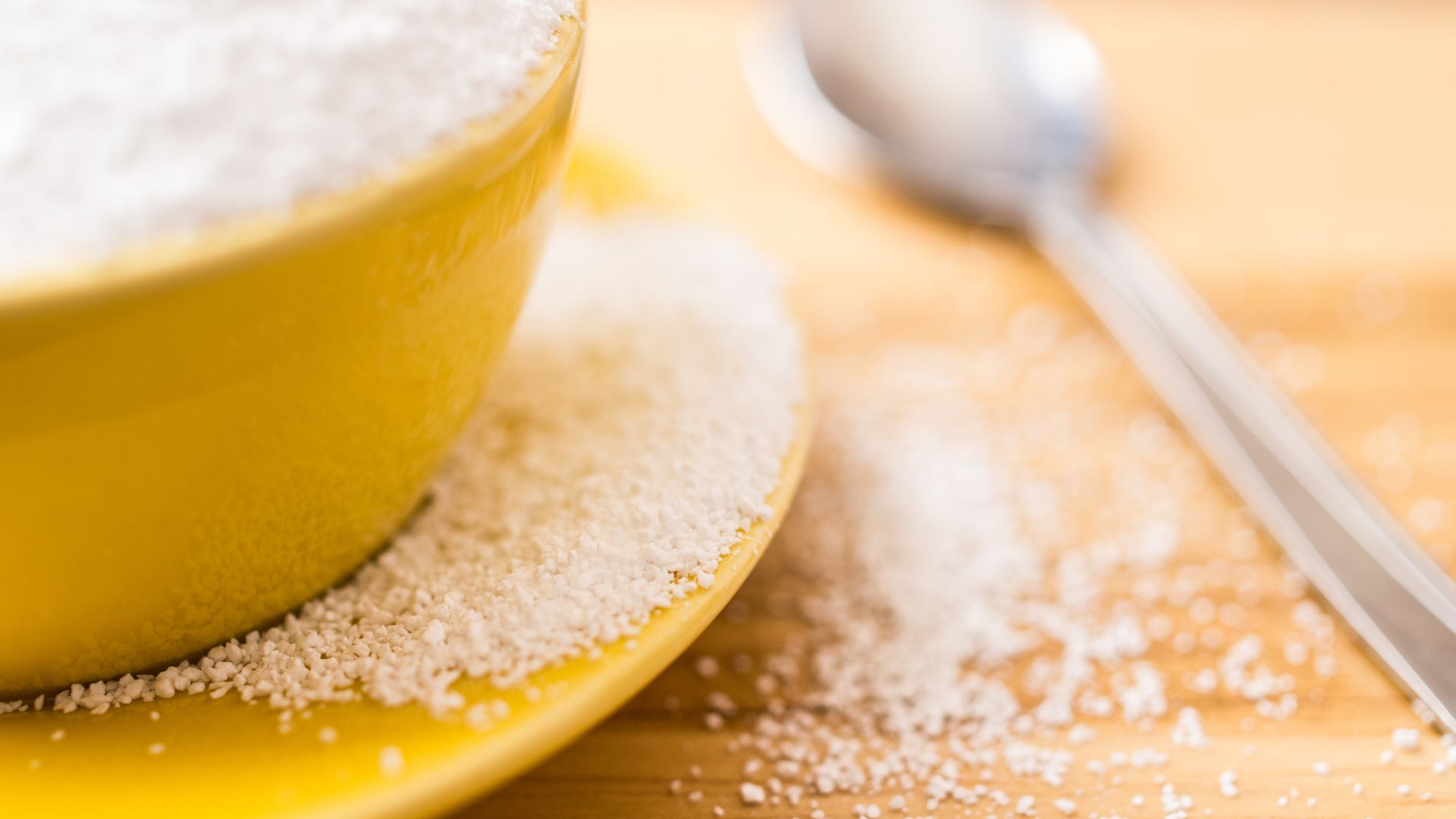Are artificial sweeteners a healthy alternative to sugar?
Low-calorie sweeteners (LCS): These are sweeteners that contain few or no calories, but have a higher sweetness intensity per gram than sweeteners that contain calories, such as table sugar, fruit juice concentrates, and syrups. Maize. Other names for artificial sweeteners are non-nutritive sweeteners, artificial sweeteners, sugar substitutes, and high-intensity sweeteners.
Artificial sweeteners are found in many drinks and foods such as frozen desserts, yogurt, puddings, baked goods, gum, breakfast cereals, gelatin, and puddings. Foods and drinks that contain artificial sweeteners are sometimes labeled "sugar-free" or "diet." Some artificial sweeteners can be used as general purpose sweeteners.
Because artificial sweeteners are several times sweeter than table sugar, they can be used in smaller quantities to achieve the same level of sweetness as sugar. People may use these sweeteners instead of sugar to consume fewer calories or less sugar or to better control blood glucose if they have diabetes or prediabetes.
There are six types of artificial sweeteners approved as food additives by the US Food and Drug Administration (FDA). Many studies have been conducted on each type to determine potential toxic effects. They are all sweeter than table sugar (sucrose) but contain few or no calories. 
Are artificial sweeteners safe?
Food manufacturers have stated that artificial sweeteners may help prevent tooth decay, control blood sugar levels, and reduce calorie intake. Some competent authorities, such as the European Food Safety Authority (EFSA), have approved part of this information, but only for specific types of artificial sweeteners, which are: Xylitol, Sorbitol, and Sucralose.
Recently, it has been suggested that the use of artificial sweeteners may have an effect on stimulating and increasing appetite, and thus may play a role in weight gain and obesity. However, the research on sweeteners and appetite stimulation is inconsistent and not strong enough. The evidence from studies conducted in the long term to show that sweeteners lead to increased energy consumption and contribute to the risk of obesity was very weak, and so we return to the positivity of the use of artificial sweeteners, especially those made from sucralose, in reducing the amount of calories consumed and thus their role in weight loss still exists. .
In conclusion, in my opinion as a nutritionist, I say that if you are trying to reduce the amount of sugar you eat daily to control your weight or your diabetes, you can do so without using artificial sweeteners. You need willpower and simple changes in your daily life.
Artificial sweeteners may be a really useful alternative for diabetics who need to monitor their sugar levels, so that they are not deprived of the enjoyment of eating their favorite foods. They will get the sweet taste of foods and drinks, but at the same time, there will be no increase in blood sugar levels, and of course moderation is the most important rule, in addition to taking advice from your specialist (nutritionist). We still need more research on the pros and cons of artificial sweeteners for various medical and health conditions.
The safety of food alternatives
Government health agencies oversee the ingredients that product makers add to food. These agencies examine ingredients, such as sugar substitutes, before foods or drinks that contain them are put on the market for sale. In the United States, the Food and Drug Administration (FDA) allows the use of the following sugar substitutes:
§ Acesulfame potassium.
§ Aspartame.
§ Neotam.
§ Saccharin.
§ Sucralose.
§ Purified stevia leaf extracts.
§Advantage
Other countries, such as those in the European Union, have more options for sugar substitutes than the United States.
The Food and Drug Administration (FDA) and food safety agencies in other countries also suggest how much sugar substitute you can safely eat each day. This amount is called the acceptable daily intake (ADI). It varies according to the person's weight and the type of sugar substitute used. The acceptable daily amount is not the same everywhere. They are different in the United States and Europe, for example.
In general, artificial sweeteners are considered safe when taken in limited amounts by healthy people, including pregnant women. But you should limit or stop using sugar substitutes:
If you live with a genetic disease. Also, foods and drinks that contain aspartame can lead to serious health problems if you consume a large amount of them.
Also, if you have a disease, it is the intestines. Using sugar substitutes may trigger symptoms.
The Dietary Guidelines for Americans also say that adults should not give sugar substitutes to children under age 2. In general, experts need to conduct more studies to find out the long-term health effects that sugar substitutes may have on children. Most studies have looked at the effects in adults.
Benefits of artificial sweeteners
1. Weight control
Artificial sweeteners may be beneficial for people trying to lose weight or maintain their current weight.
2. Control diabetes
Do artificial sweeteners raise insulin?
People with diabetes may choose to eat foods and drinks that contain artificial sweeteners versus those with added sugars because these sweeteners will affect blood sugar much less and do not raise insulin.
3. Preventing tooth decay
Artificial sweeteners do not increase the chances of tooth decay. This is why they are used in oral hygiene products, such as mouthwash and toothpaste. Studies have shown that xylitol may help prevent tooth decay.
Negative effects of artificial sweeteners:
1. Increased cravings for sweets
Artificial sweeteners can increase cravings for sweet foods, making it difficult to stick to a healthy diet.
2. Headache
Consumption of artificial sweeteners has been linked to headaches and migraines in some people.
3. Digestive system problems
Artificial sweeteners can disrupt digestive health by promoting bacterial overgrowth and triggering symptoms such as bloating, gas, and diarrhea.
4. Mood disorders
Some studies have linked the use of artificial sweeteners during dieting to mood disorders, including depression, anxiety, and irritability.
5. Cancer
There has been conflicting research on the relationship between artificial sweeteners and cancer, with some studies suggesting a possible link to bladder cancer and lymphoma.
6. Neurological disorders
Animal studies have suggested that artificial sweeteners may be neurotoxic, which may increase the risk of neurological disorders such as Parkinson's and Alzheimer's disease.
References:
Ø https://www.hsph.harvard.edu/nutritionsource/healthy-drinks/artificial-sweeteners/
Ø https://www.fda.gov/food/food-additives-petitions/aspartame-and-other-sweeteners-food

